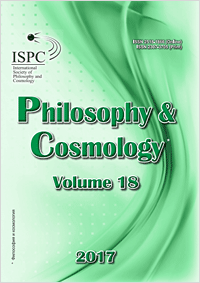Equality and Justice in Early Greek Cosmologies: The Paradigm of the “Line of the Horizon”
Equality and Justice in Early Greek Cosmologies: The Paradigm of the “Line of the Horizon”
Author(s): Maria Antonietta SalamoneSubject(s): Ancient Philosphy, Philosophy of Science
Published by: Международное философско-космологическое общество
Keywords: Plato; Aristotle; Díkē; Justice; Equality; Dividing Line; Horizon Line; Cosmology;
Summary/Abstract: The founders of Greek scientific thought believed justice in terms of equality. Cosmic equality, in fact, was conceived as the guaranty of cosmic justice: the order of nature is maintained because it is an order of equals. That the main components of the universe are equal was an old tradition in popular cosmology. In Hesiod earth and sky are declared equal (Theog. 126); and the distance between sky and earth is equal to that between earth and Tartarus (ibid. 719-25). Anaximander’s own cosmology is designed with just such a sense of aesthetic symmetry, with equality as the main motif: the intervals between each of the infinite worlds are equal; the intervals between earth, fixed stars, moon, and sun are also equal; earth and sun are equal. This is exactly the sense in which equality figures in the whole development of early cosmological theory from Anaximander to Empedocles: powers are equal if they can hold another in check, in a way that no one of them is more powerful than any other. The objective of this paper is to propose a cosmological interpretation of the term díkē in ancient Greek according to Aristotle, who establishes synonymy between justice and equality through the use of the «dividing line» paradigm. Aristotle reveals, in effect, that the words diksastḗs «judge» and dikaion «just» come from the root díkē, «judgment or sentence», which in their turn are derived from the adverb dīksā, «division into two equal parts». Moreover, the adverb dīksā comes from the Greek root dís-, «divided into two parts, dichotomous», which in its turn is derived from the Sanskrit root *diś-(dik) whose meaning indicates the astronomical concept of the «horizon line», — i.e. the boundary line that divides apparently the cosmos in two equal parts, the Earth and the Sky.
Journal: Philosophy and Cosmology
- Issue Year: 18/2017
- Issue No: 18
- Page Range: 22-31
- Page Count: 10
- Language: English

